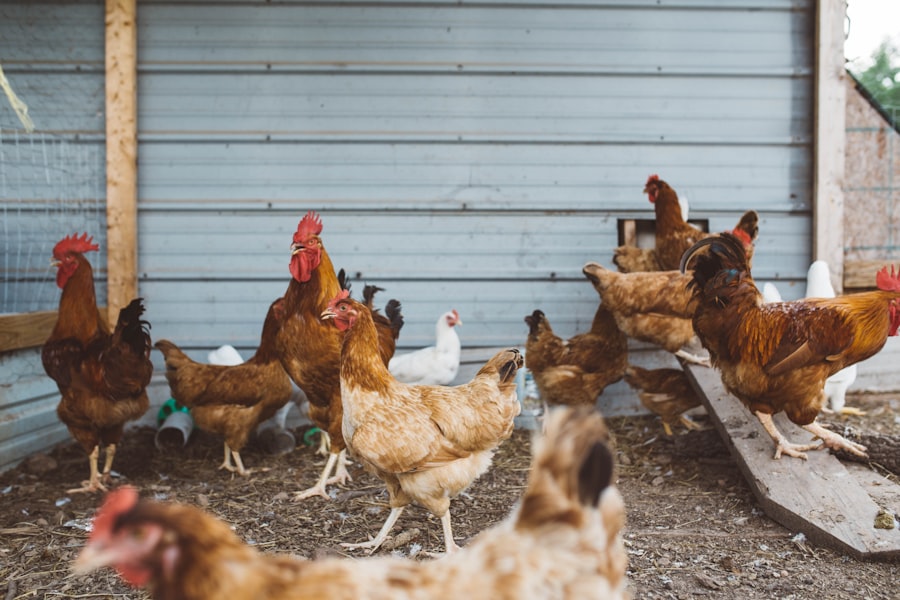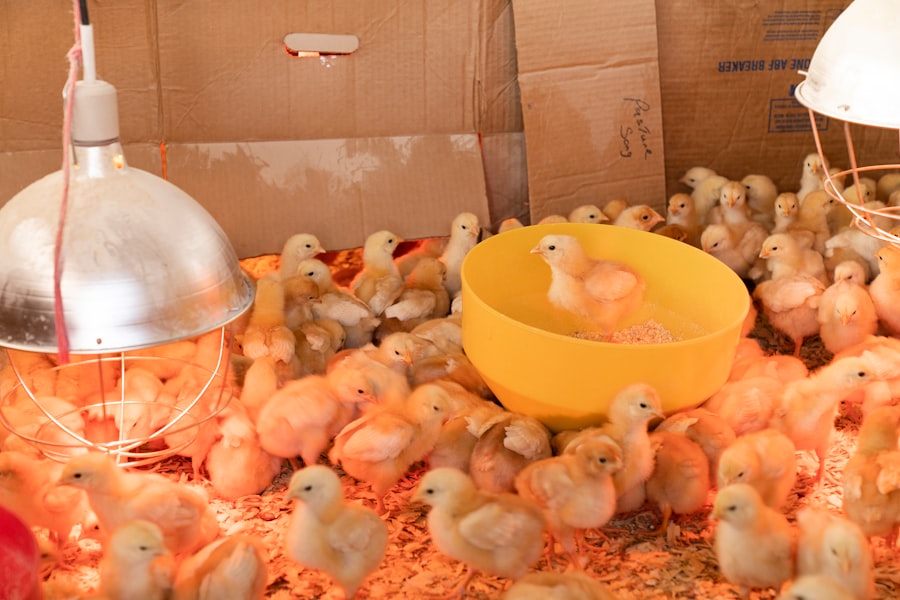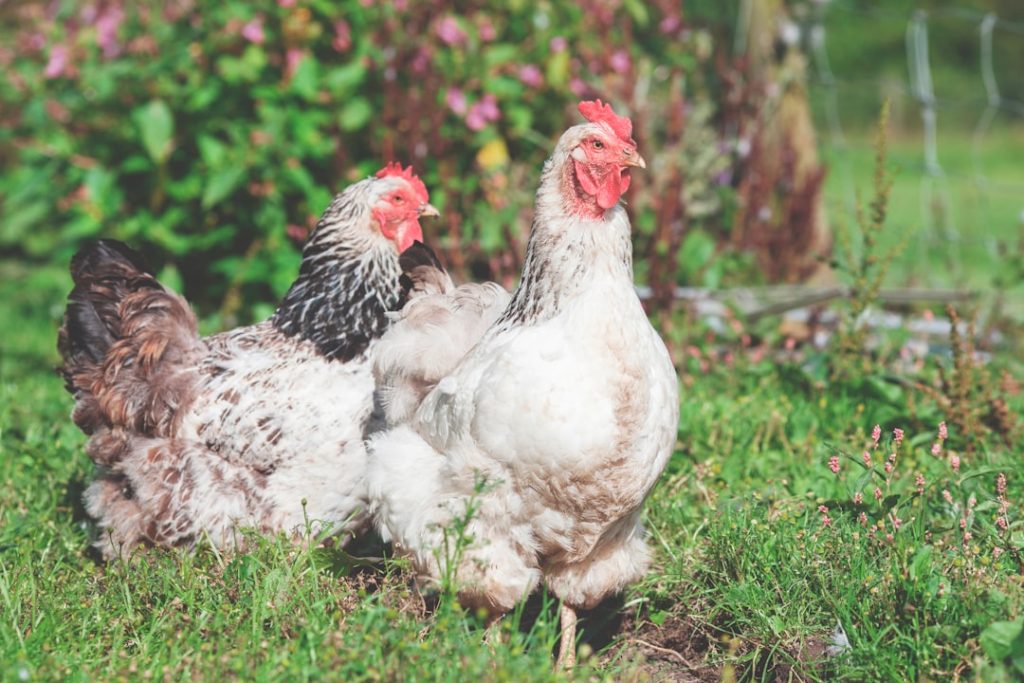Tapeworms are internal parasites that can infect chickens, causing various health problems. These flat, segmented worms can grow several inches long and reside in the intestines of infected birds. Chickens typically contract tapeworms by consuming infected intermediate hosts, such as earthworms, beetles, or other insects.
Once inside the chicken’s digestive system, tapeworms attach to the intestinal wall and absorb nutrients from the host, potentially leading to health issues and reduced egg production. Detecting tapeworm infestations in chickens can be challenging, as they often do not produce obvious symptoms. This makes it difficult for poultry owners to identify and address the problem.
However, it is crucial for chicken keepers to understand the risks associated with tapeworm infestations and implement preventive measures to control these parasites in their flocks.
Table of Contents
- 1 Symptoms of Tapeworm Infestation in Chickens
- 2 Common Causes of Tapeworms in Chickens
- 3 Prevention and Control of Tapeworms in Chickens
- 4 Treatment Options for Tapeworm Infestation in Chickens
- 5 Importance of Regular Veterinary Checks for Chickens
- 6 Ensuring Proper Hygiene and Sanitation Practices for Chicken Coops
- 7 FAQs
Key Takeaways
- Tapeworms are a common internal parasite in chickens and can cause health issues if left untreated.
- Symptoms of tapeworm infestation in chickens include weight loss, decreased egg production, and diarrhea.
- Common causes of tapeworms in chickens include exposure to infected intermediate hosts and poor sanitation practices.
- Prevention and control of tapeworms in chickens can be achieved through regular deworming, proper hygiene, and minimizing exposure to intermediate hosts.
- Treatment options for tapeworm infestation in chickens include deworming medications prescribed by a veterinarian and improving overall flock health.
Symptoms of Tapeworm Infestation in Chickens
Recognizing the Symptoms
Tapeworm infestations in chickens may not always produce noticeable symptoms, but there are several signs that poultry owners can watch for to identify potential issues. Some common symptoms of tapeworm infestations in chickens include weight loss, decreased egg production, diarrhea, and general signs of poor health such as lethargy and decreased appetite.
Severe Cases and Complications
In severe cases, chickens may also exhibit symptoms such as abdominal swelling, anemia, and visible segments of tapeworms in their droppings.
Prevention and Management
It is important for poultry owners to monitor their flocks closely for any signs of illness or changes in behavior that could indicate a potential tapeworm infestation. Regular health checks and observations can help identify issues early on and prevent the spread of parasites within the flock. Additionally, working with a veterinarian who specializes in poultry health can provide valuable guidance and support in managing tapeworm infestations and other health concerns in chickens.
Common Causes of Tapeworms in Chickens

Tapeworm infestations in chickens are typically caused by the ingestion of infected intermediate hosts, such as earthworms, beetles, or other insects. Chickens that have access to outdoor environments or free-range areas are particularly at risk for coming into contact with these intermediate hosts and becoming infected with tapeworms. Additionally, poor sanitation practices within the chicken coop or living environment can contribute to the spread of tapeworms and other parasites.
In some cases, tapeworm infestations may also be introduced to a flock through the introduction of new birds or contaminated equipment. It is important for poultry owners to be mindful of potential sources of tapeworm infestations and to take proactive measures to prevent the spread of parasites within their flocks. This can include implementing regular deworming protocols, maintaining clean living environments, and monitoring the health and behavior of chickens for any signs of illness or infestation.
Prevention and Control of Tapeworms in Chickens
Preventing and controlling tapeworm infestations in chickens requires a multi-faceted approach that addresses both the immediate health concerns of infected birds and the long-term management of parasite populations within the flock. One key aspect of prevention is maintaining proper sanitation practices within the chicken coop and living environment. This includes regularly cleaning and disinfecting the coop, removing feces and soiled bedding, and minimizing contact with potential intermediate hosts such as earthworms and insects.
In addition to sanitation practices, poultry owners can also implement regular deworming protocols to help control tapeworm populations within their flocks. There are a variety of deworming products available for chickens, including medicated feed additives, water-soluble treatments, and topical applications. Working with a veterinarian who specializes in poultry health can help poultry owners develop an effective deworming plan that is tailored to the specific needs of their flock.
Treatment Options for Tapeworm Infestation in Chickens
If a tapeworm infestation is suspected or confirmed in a chicken flock, it is important to take prompt action to address the issue and prevent further spread of parasites. Treatment options for tapeworm infestations in chickens typically involve the use of deworming medications that are specifically formulated to target internal parasites such as tapeworms. These medications may be administered orally, added to the flock’s drinking water, or applied topically, depending on the specific product and the recommendations of a veterinarian.
In addition to deworming medications, supportive care may also be necessary to help affected chickens recover from the effects of tapeworm infestations. This can include providing supplemental nutrition, ensuring access to clean water, and monitoring affected birds for any signs of improvement or complications. It is important for poultry owners to work closely with a veterinarian throughout the treatment process to ensure that affected birds receive appropriate care and support.
Importance of Regular Veterinary Checks for Chickens

Expert Guidance for Health Concerns
A veterinarian specializing in poultry health can offer valuable guidance and support in managing various health concerns, including tapeworm infestations and other internal parasites. Through regular check-ups, veterinarians can help poultry owners monitor the overall health of their flocks, identify potential issues early on, and develop effective prevention and treatment plans.
Preventing Health Issues
In addition to addressing specific health concerns, regular veterinary checks provide an opportunity for poultry owners to receive guidance on best practices for maintaining proper nutrition, sanitation, and overall flock management. This can help prevent a range of health issues, including tapeworm infestations, and promote the long-term health and productivity of chicken flocks.
Comprehensive Care and Support
By working closely with a veterinarian, poultry owners can ensure that their flocks receive comprehensive care and support. Regular veterinary checks are essential for maintaining the health and well-being of chicken flocks, and can help poultry owners build a strong and healthy flock.
Ensuring Proper Hygiene and Sanitation Practices for Chicken Coops
Proper hygiene and sanitation practices are essential for preventing the spread of tapeworms and other parasites within chicken flocks. Maintaining a clean living environment is key to minimizing the risk of infestations and promoting the overall health and well-being of chickens. This includes regularly cleaning and disinfecting the chicken coop, removing feces and soiled bedding, and minimizing contact with potential intermediate hosts such as earthworms and insects.
In addition to regular cleaning practices, poultry owners should also implement measures to prevent the introduction of new parasites into their flocks. This can include quarantining new birds before introducing them to an existing flock, regularly inspecting equipment and supplies for signs of contamination, and monitoring the health and behavior of chickens for any signs of illness or infestation. By taking proactive measures to maintain proper hygiene and sanitation practices, poultry owners can help protect their flocks from the risks associated with tapeworm infestations and other internal parasites.
In conclusion, tapeworm infestations can pose significant risks to the health and productivity of chicken flocks. By understanding the causes, symptoms, prevention methods, treatment options, and the importance of regular veterinary checks and proper hygiene practices, poultry owners can take proactive measures to protect their flocks from the risks associated with tapeworm infestations. Working closely with a veterinarian who specializes in poultry health can provide valuable guidance and support in managing tapeworm infestations and other health concerns in chickens.
By implementing comprehensive prevention and control measures, poultry owners can promote the long-term health and well-being of their flocks while minimizing the risks associated with internal parasites such as tapeworms.
If you’re concerned about your chickens getting tapeworm, you may want to consider building a secure and clean chicken coop to prevent infestations. Check out this article on chicken coop design in Grand Island, NE for tips on creating a safe and healthy environment for your flock. A well-maintained coop can help reduce the risk of tapeworm and other parasites affecting your chickens.
FAQs
What are tapeworms and how do chickens get them?
Tapeworms are parasitic flatworms that can infect chickens when they consume contaminated food or water, or when they come into contact with infected intermediate hosts such as earthworms or insects.
What are the symptoms of tapeworm infestation in chickens?
Symptoms of tapeworm infestation in chickens may include weight loss, decreased egg production, diarrhea, poor growth, and in severe cases, obstruction of the digestive tract.
How can tapeworm infestation in chickens be prevented?
To prevent tapeworm infestation in chickens, it is important to practice good hygiene and sanitation in the coop and surrounding areas. This includes regularly cleaning and disinfecting the coop, providing clean water and feed, and minimizing contact with potential intermediate hosts.
How is tapeworm infestation in chickens treated?
Tapeworm infestation in chickens can be treated with deworming medications specifically designed for poultry. It is important to follow the instructions provided by a veterinarian or poultry health professional when administering these medications.
Can tapeworm infestation in chickens affect humans?
While tapeworm infestation in chickens can be a concern for poultry health, it is important to note that the specific species of tapeworm that infects chickens is not typically transmissible to humans. However, it is still important to practice good hygiene when handling chickens and their eggs to minimize the risk of any potential transmission of parasites.
Meet Walter, the feathered-friend fanatic of Florida! Nestled in the sunshine state, Walter struts through life with his feathered companions, clucking his way to happiness. With a coop that’s fancier than a five-star hotel, he’s the Don Juan of the chicken world. When he’s not teaching his hens to do the cha-cha, you’ll find him in a heated debate with his prized rooster, Sir Clucks-a-Lot. Walter’s poultry passion is no yolk; he’s the sunny-side-up guy you never knew you needed in your flock of friends!







